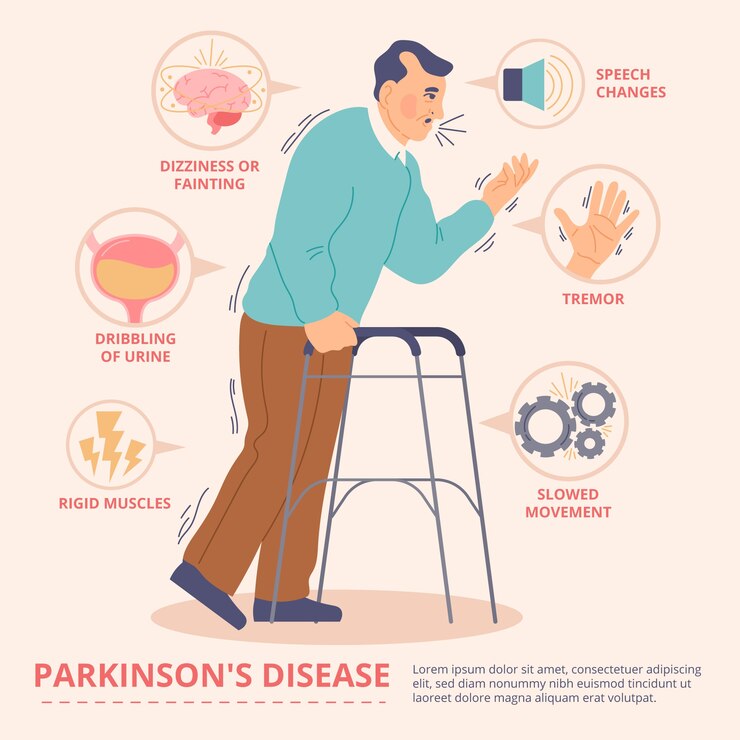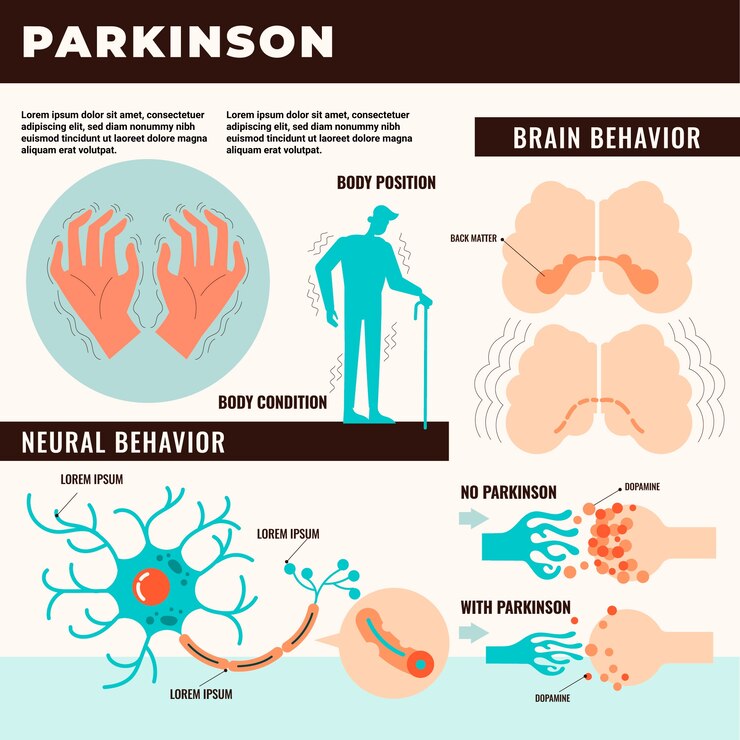Table of contents
Parkinson’s Disease (PD) is a progressive neurological disorder that affects movement, muscle control, and balance. As traditional treatments for Parkinson’s often come with side effects or lose effectiveness over time, many patients are seeking complementary therapies. Among these, CBD for Parkinson’s Disease is gaining attention for its potential to ease certain symptoms and improve overall quality of life.
In this blog post, we’ll explore how CBD may help those living with Parkinson’s Disease, backed by emerging research and anecdotal evidence.
What Is Parkinson’s Disease?

Parkinson’s Disease is caused by the degeneration of dopamine-producing neurons in the brain. This leads to symptoms such as:
- Tremors
- Muscle rigidity
- Bradykinesia (slowness of movement)
- Postural instability
- Sleep disturbances
- Anxiety and depression
- Cognitive decline in later stages
While there’s no cure for Parkinson’s Disease, various treatments aim to manage symptoms. Now, CBD for Parkinson’s Disease is being explored as a promising alternative or complementary approach.
How CBD Works in the Body
CBD (cannabidiol) is a compound found in the cannabis plant. Unlike THC, it does not cause a “high.” Instead, it interacts with the endocannabinoid system (ECS), which regulates mood, sleep, pain, inflammation, and motor control — all functions often disrupted in Parkinson’s Disease.
CBD’s anti-inflammatory, neuroprotective, and anxiolytic (anti-anxiety) properties have made it an area of growing interest for neurodegenerative disorders, including PD.
Potential Benefits of CBD for Parkinson’s Disease

1. Reduced Tremors and Motor Symptoms
Some users report that CBD helps reduce involuntary movements and tremors associated with Parkinson’s. Although more clinical trials are needed, the calming effects of CBD may help muscles relax.
2. Better Sleep Quality
Sleep disturbances are common in PD. CBD may promote deeper, more restful sleep by interacting with serotonin receptors and reducing nighttime anxiety or restlessness.
3. Relief from Anxiety and Depression
Mental health struggles are frequent among PD patients. Studies show CBD can help manage anxiety and depression by positively influencing brain chemistry.
4. Neuroprotection
Early research suggests that CBD may protect neurons from further damage and oxidative stress, potentially slowing the progression of neurological decline.
5. Improved Quality of Life
Overall, many individuals using CBD for Parkinson’s Disease report improved daily function, enhanced mood, and greater ease in managing symptoms.
How to Use CBD for Parkinson’s Disease
Patients may use CBD in different forms depending on their needs:
- CBD Oil or Tinctures: Taken sublingually for fast absorption and general symptom management.
- CBD Capsules or Gummies: Provide consistent doses, ideal for daily routines.
- CBD Topicals: Applied directly to muscles and joints to ease stiffness or pain.
- CBD Vapes (where legal): Quick relief for acute symptoms but may not be suitable for everyone.
Always start with a low dose and increase gradually. Choose full-spectrum or broad-spectrum CBD for a wider range of benefits, and make sure your product is third-party tested for safety and purity.
Is CBD Safe for People with Parkinson’s?
CBD is generally considered safe, with few reported side effects such as fatigue, dry mouth, or changes in appetite. However, it can interact with some medications, especially those processed by the liver. Always consult your doctor before starting CBD, especially if you’re already on prescribed medication for Parkinson’s.
FAQs About CBD for Parkinson’s Disease
No, CBD does not cure Parkinson’s Disease. However, it may help manage symptoms like tremors, anxiety, and sleep disturbances.
CBD derived from hemp with less than 0.3% THC is legal in many countries, including the U.S. Always check local regulations before purchasing.
This varies from person to person. Some notice effects within days, while others may need a few weeks of consistent use to see changes.
It can. CBD may affect how your liver metabolizes certain drugs. Always speak to your healthcare provider before using it alongside your current treatment.
CBD oils and tinctures are commonly used for their fast-acting effects. However, capsules, gummies, and topicals may also be beneficial depending on the symptom.
Final Thoughts
While research is still ongoing, the early evidence and personal testimonies show promise for CBD for Parkinson’s Disease. Whether it’s improving sleep, reducing anxiety, or easing tremors, CBD may serve as a valuable part of a broader symptom management strategy.
If you or a loved one are considering trying CBD, always consult a healthcare professional, choose high-quality products, and start with a cautious dose. As the science evolves, so too does the potential for CBD to offer real, meaningful support for those living with Parkinson’s.





